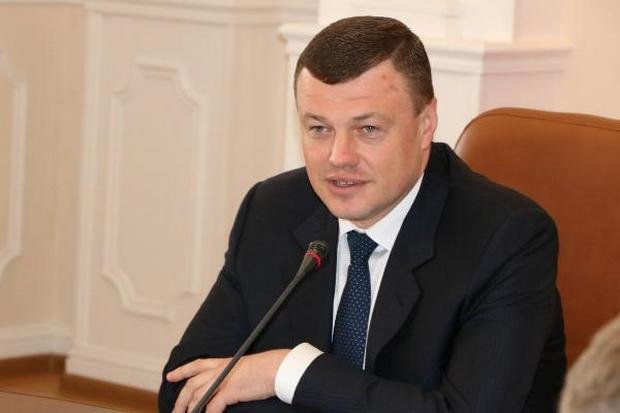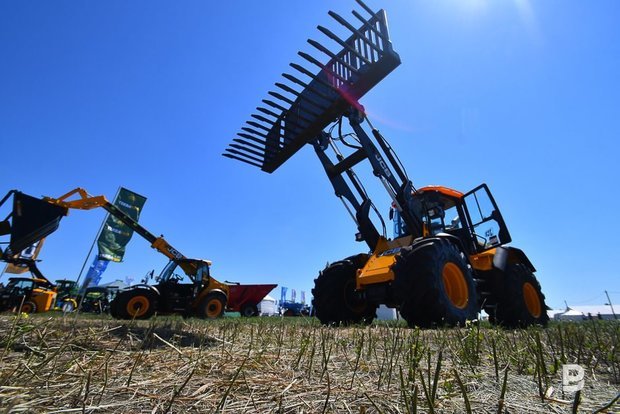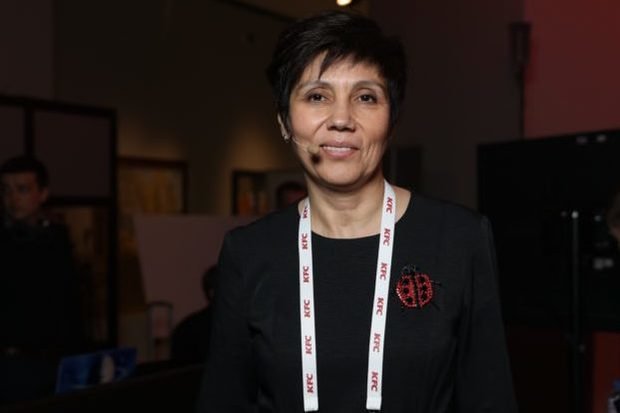To digitalise fields: agriculture to get rid of humans
''The fewer people, the fewer risks'', informatisation of the agro-industrial complex has been discussed at Gaidar Forum
How the state and businesses' joint work might change the agro-industrial complex – it's what was discussed at Gaidar Forum's business breakfast. Digitalisation of agriculture might increase productivity many times and reduce costs. Regional leaders think every region is introducing IT solutions on its own, and the technological difference doesn't favour fast development of the sector. Representatives of public catering claim they face a shortage of products, which affects the prime cost. Realnoe Vremya tells the details.
Agriculture to get rid of humans
''If you eat, you're already a member of agricultural production,'' Vice Chairman of the government Aleksey Gordeyev stressed the importance of the topic. According to him, agriculture in Russia has big advantages because it's a privatised sector, and there is competition.
''Entrepreneurs know better what to sow, how to buy and sell, while the state should the best conditions for the business,'' Gordeyev said when opening the discussion.
One of the conditions is to digitalise agriculture, moreover, not at a local level when separate manufacturers adopt new technologies but also at the global one. Some regions did an experiment in adopting digital technologies in the agro-industrial complex, and their leaders drew brief conclusions – productivity rose many times. Tambov Oblast is one of the pilot regions.
''I completely agree with Mr Gordeyev that there is terrifying technological difference in digitalisation,'' head of the administration of Tambov Oblast Aleksandr Nikitin said.

Nikitin told the region created a map of agricultural lands, there are projects to create a ''smart'' herd with individual feeding and maintenance system of every animal, without a human:
''When the farms had milkmaids with rosy cheeks, it was more interesting. But digital systems are aimed to improve the quality of milk and extend animals' production life. The absence of a human in processes positively influences the effectiveness.''
''We reduced the staff but faced an acute problem of a deficit of highly qualified specialists''
Governor of Altai Krai Viktor Tomenko told the region introduced a system of space field monitoring:
''10% of arable lands are covered, there is a great result. Rodinskoye, which is part of KDV-group, as well as other our farms, increases the yield of crops three times and reduces costs on fuel and lubricant materials by a quarter thanks to IT solutions.''
When telling about the experience of his enterprise, Sergey Mikhailov, director general at Cherkizovo Group PJSC, specified that workforce productivity grew 10 times with the implementation of digital technologies. But progress creates new problems.
''Digitalisation allows to guarantee quality – the fewer people, the fewer risks. Unfortunately, it's a fact. According to the experience in launching a robotised factory in Kashira, we reduced the staff but faced an acute problem of a deficit of highly qualified specialists – engineers who can support such high-tech equipment. We should think how to train such specialists because we will need to move on this path of informatisation further on, and it's impossible without qualified engineers,'' Mikhailov noted.

He says the agricultural digitalisation paces in Russia are very low. Last year, Russia purchased 200 robots, while China did 69,000. Agricultural digitalisation has the other side of the coin – the reduction in the role of the human in production processes will lead to residents' flight to cities.
''The challenges we face are the concentration of capacities in Central Russia, and we have an enormous deficit of capacities beyond the Urals''
Transnational companies are interested in digitalising agriculture in Russia. Raisa Polyakova, director general of KFC (Russia), shared her big expectations linked with the Russian AIC.
''We have over 700 cafes across Russia, 80% of products we purchase in Russia, we support the doctrine of national food safety, and we need stable available products to be in the Russian market. The challenges we face are the concentration of capacities in Central Russia, and we have an enormous deficit of capacities beyond the Urals. The issue of prime cost in the AIC is the prime cost of our products and what we can turn into prices for our consumers,'' Polyakova told.
China is interested in food supplies from Russia.
''We welcome food imports from Russia – products are ecologically cleaner, have good quality and they are sometimes tastier,'' a representative of the Union of Chinese Entrepreneurs in Russia noted.

He offered to follow his country's example and implement vertical agriculture. But he immediately doubted how topical it was for Russia considering that we have more land than the Celestial Kingdom. Another his proposal is to grow fruits and vegetables for Chinese medicine.
''In Chinese medicine, every fruit has a certain function. If you have lung problems, you should eat pears every day. If something is wrong with your guts, you should eat a banana, to prevent flu – ginger root. Now big data are used in China – when spring comes, flu becomes active, and agricultural producers start to grow more ginger. In this respect, it will also be useful for your people,'' China's representative advised.
''Russia is unlikely to be able to help with bananas,'' the discussion's participants laughed.
To invest in clean water and food not to invest in drugs
Governor of Oryol Oblast Andrey Klychkov stated that he was ready to spend a part of the subsidies the federal centre allocates to develop the AIC on a global task – to digitalise all agricultural lands of Russia.
''If everyone accomplishes this task on his own, it will be long, and the quality will be low. And there won't be a single portal for those who would like to deal with agriculture at any point of the country,'' Klychkov shared his opinion.
According to him the digitalisation will increase food safety in the country and put an example of Finland's experience: ''They didn't invest in drugs like we're doing now, not in the equipment that tries to find out what disease a person has but in clean water and products.''